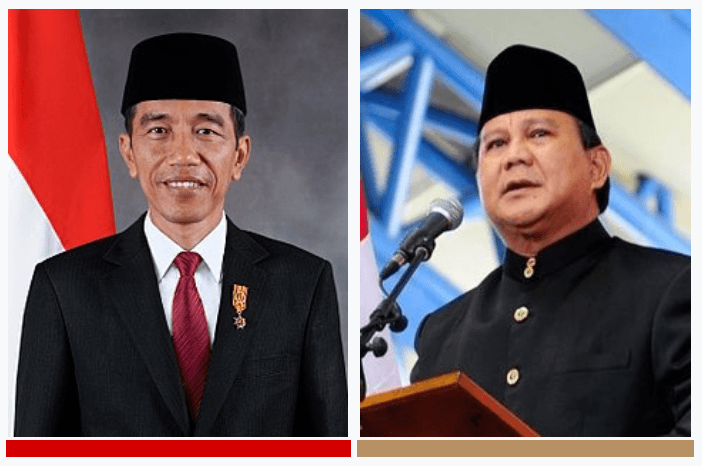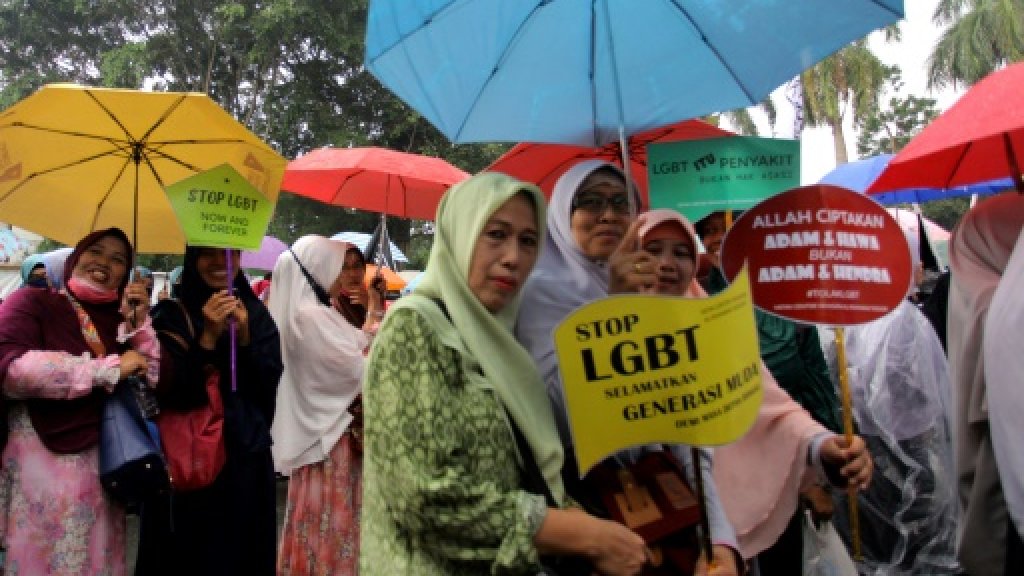Transgender Indonesians fear for the future as election looms
Colin Stewart is a 45-year journalism veteran living in Southern…
The run-up to next spring’s general election in Indonesia has transgender citizens fearing for their safety as anti-LGBTI rhetoric sweeps parts of the country.

By Lloyd Copper
Hostility towards sexual minorities is growing in Indonesia, says Yuni Shara, co-manager of Pesantren Al Fatah, the only Indonesian boarding school welcoming transgender students.
Her school in Yogyakarta, a city on the island of Java, was forcibly shut down for four months in 2016 by the Islamic Jihad Front (FJI).
It has since reopened, offering worship as well as a safe place for Indonesia’s waria (as transgender people are known).
The school was accused of promoting “un-Islamic” activites such as alcohol use and karaoke. Shinta Ratri, the leader of the school, said they had no opportunity to refute the accusations of disgruntled townspeople and members of the FJI.
In 2015, FJI also enforced their political clout and beliefs on a Christian group by forcing the cancellation of a camp for school-aged students in Yogyakarta.
The LGBTI community is alarmed by the candidacy of incumbent president Joko Widodo and his vice-presidential running mate, homophobic cleric Ma’ruf Amin, Shara told the Globe Post.
Amin has made clear his contempt for the gay community. He supports the vaguely worded Anti Pornography Law, which has been exploited to allow police to arrest hundreds of adults, including gay men at private parties. He is not going to advance rights for LGBTI people.
Their main rival, Prabowo Subianto, doesn’t offer Shara much hope either, even though Subianto’s son, Didit Hediprasetyo, is gay. Didit is a successful fashion designer living in exile in France. He has spoken out in support of LGBTI people, but that doesn’t mean his beliefs have rubbed off on his father, as an editorial in the Jakarta Post opined.
Although Widodo declared his support for LGBTI people in Indonesia, that statement was undercut by his reminder that that the country has strong traditions opposing sexual minorities.

The vulnerability of the LGBTI population could be exploited by politicians sympathizing with Islamic groups to score votes from uninformed or homophobic voters. Indeed, the waria and the lesbian, gay and bisexual communities of Indonesia have many reasons to feel gloomy about their human rights as abuses levelled against them intensify. Those include the recent ban on gay sex in the city of Pariaman, the attack on the waria citizens in West Java who had their hair forcibly shaven, to the forced “exorcisms” performed on same-sex couples in Padang in November.
Whether the hysteria surrounding LGBTI people in Indonesia will settle down after the election on 17th April 2019 remains to be seen.
Lloyd Copper is an Australian writer with a passion for promoting awareness of international LGBTI issues. He has a background in journalism and social work. He is a co-administrator of the Anonymous LGBT Legion Facebook page and has previously written for Queensland Pride, an LGBTI publication, and Scenestr, an Australian arts publication.
Related articles:
- Indonesians try exorcisms to chase away ‘gay genies’ (
- As AIDS rises in Indonesia, coalition urges LGBTI vigilance (
- Another Indonesian city outlaws gay sex (
- Indonesia plunges deeper into anti-gay panic (
- Indonesia puts anti-gay bill on hold (, 76crimes.com)
- Indonesia [would] criminalise homosexual and extramarital sex under proposed law changes (March 2018, South China Morning Post)
- LGBT repression grows in Indonesia, with 141 arrests, public caning (May 2017, 76crimes.com)
- Study: Anti-LGBT bias costs Indonesia up to $12 billion (March 2017, 76crimes.com)
- Indonesian police push anti-LGBT militant Islamic agenda (January 2017, 76crimes.com)
- Indonesia Muslim hardliners break up what they think is gay sex party (November 2016, Reuters)
- Indonesian president: Police must defend LGBT citizens (October 2016, 76crimes.com)
- Indonesia: Detention, ‘rehab’ for 2 women who hugged (October 2015, 76crimes.com)
- Archive of this blog’s coverage of Indonesia




6 surprising facts about Nigeria’s anti-gay-marriage law